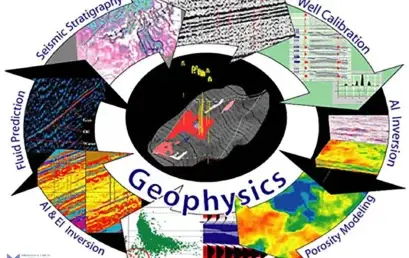Veterinary Surgery INTIAU
Are you considering veterinary surgery for your pet? It’s important to understand the procedure and potential risks involved. In this blog post, we will walk you through the process of veterinary surgery, including pre-surgery preparation, pain management, and post-surgery care. We’ll also discuss common types of surgeries, such as spaying and neutering, and what to expect during and after these procedures. Our expert veterinary team is committed to providing compassionate care and ensuring your pet’s safety and comfort throughout the surgery process. Whether your pet is in need of a routine procedure or a more complex surgery, we’re here to guide you through the process and answer any questions you may have.
INTIAU Veterinary Medicine
If you’re looking for information on veterinary medicine, look no further than INTIAU. Our team of experienced veterinarians is dedicated to providing the highest standard of care for your furry friends. Whether you’re looking to schedule a routine checkup or require emergency care for your pet, we have you covered. We offer a wide range of services, from vaccinations to surgery, and use only the latest technology to ensure your pet receives the best possible treatment. Our compassionate staff understands that pets are part of the family, so we always treat them with the same care and respect that we would want for our own animals. Discover the benefits of INTIAU veterinary medicine today.
INTIAU Curriculum Design
Looking for a comprehensive guide on designing curriculum for INTIAU? Look no further! Our blog post covers everything you need to know about crafting engaging and effective learning experiences for your students. From setting learning objectives to selecting appropriate instructional materials, we’ve got you covered. Discover the secrets to developing learning outcomes that align with your students’ needs and interests. With our expert advice, you’ll be able to design a curriculum that fosters creativity, critical thinking, and active learning. Whether you’re a new educator or a seasoned pro, our INTIAU curriculum design post will help you create dynamic, inclusive, and meaningful learning experiences that inspire your students.
Plant Biology Course
Plant biology is a fascinating field that delves into the inner workings of the plant kingdom. As an integral part of our ecosystem, plants play a vital role in providing us with oxygen and food. They are also a source of natural medicine and have aesthetic value.
One of the most interesting aspects of plant biology is the study of photosynthesis – a process that allows plants to convert sunlight into energy. This process not only benefits the plant, but it also releases oxygen into the atmosphere, making it possible for us to breathe.
Another exciting area of plant biology is the research on plant genetics. Scientists are now able to study and manipulate the genes in plants to improve crop yields, resist diseases, and adapt to changing environmental conditions.
Furthermore, plant biology plays a critical role in mitigating environmental issues such as climate change. Plants absorb carbon dioxide – a greenhouse gas that contributes to global warming – and release oxygen, helping to reduce the impact of climate change.
In conclusion, plant biology is essential to our planet’s health and our overall survival. Through ongoing research and advancements in plant biology, we can continue to unlock the secrets of the plant kingdom and harness its benefits for future generations.
Persian Language and Literature
Persian language and literature are some of the oldest and most respected cultural treasures in the world. With origins dating back to the first millennium BC, Persian literature has created a rich and varied literary tradition, renowned for its poets, novelists, and thinkers.
From the famous poet and philosopher Rumi, to the romantic tales of Ferdowsi’s Shahnameh, Persian literature is full of diverse and beautifully crafted works of art that have left their mark on literature worldwide.
The Persian language, also known as Farsi, is spoken by over 110 million people across the world, making it one of the most widely spoken languages in the Middle East. Known for its complex grammar and rich vocabulary, it has become a popular choice for those looking to learn a new language and explore its literary world.
As a key part of Iranian culture, Persian language and literature have played a vital role in shaping the artistic and intellectual world of the country. From the poetry of Hafiz and Saadi, to the plays of Abbas Kiarostami, Persian literature continues to inspire and captivate audiences around the world.
Molecular Genetics INTIAU
Molecular genetics is a branch of genetics that focuses on the study of the molecular structure and function of genes. Through this field, scientists aim to understand how genetic information is encoded, replicated, and expressed. It provides a framework for studying inheritance patterns, the mechanisms of gene expression, genetic disorders, and evolutionary biology.
One of the key techniques used in molecular genetics is DNA sequencing, which enables scientists to read the genetic code of organisms. The emergence of modern sequencing technologies has revolutionized molecular genetics, making it possible to explore vast amounts of genetic information in a short amount of time. With these tools, scientists have made groundbreaking discoveries in fields ranging from medicine to agriculture to conservation biology.
One of the most significant accomplishments in molecular genetics was the Human Genome Project, which aimed to sequence and map the entire human genome. Completed in 2003, this project paved the way for new approaches to diagnosis, treatment, and prevention of genetic diseases.
Molecular genetics also has an important role in personalized medicine. By analyzing an individual’s genetic makeup, doctors can design customized treatments for diseases based on the unique genetic mutations of the patient.
In conclusion, molecular genetics has transformed our understanding of genetics, providing us with the tools to explore the fundamental principles of life. Its implications are vast, and it has the potential to revolutionize the way we diagnose, treat, and prevent diseases in the years to come.
Marine Biology INTIAU
Marine Biology: An Overview
Marine biology is the study of living organisms in the oceans and other bodies of saltwater. This field of biology encompasses a wide range of disciplines, from the study of individual organisms to the study of entire marine ecosystems.
Marine biologists study fish, sharks, sea turtles, whales, dolphins, corals, and other marine organisms. They investigate the physical and chemical properties of marine environments, as well as the interactions between organisms and their habitats. They also work to protect endangered species and preserve marine ecosystems.
One of the most exciting aspects of marine biology is the discovery of new species. Since the oceans cover over 70% of the Earth’s surface, there is still much to be uncovered and studied in the field of marine biology.
Career opportunities in marine biology are diverse and exciting. Marine biologists can work in academia, government agencies, conservation organizations, the fishing industry, and more.
Ultimately, marine biology helps us understand and appreciate the complex, interconnected web of life in the oceans, and the important role that these environments play in our planet’s health.
Linguistics International Azad University
Linguistics: The Science of Language
Language is one of humanity’s most distinguishing features. Whether through speech, writing, or even sign language, we use language to communicate with one another, convey our thoughts and feelings, and understand the world around us. But have you ever wondered how language works, or how it evolved over time?
Enter linguistics, the scientific study of language. Linguistics is a multidisciplinary field that draws on insights from psychology, anthropology, neuroscience, computer science, and other disciplines to investigate the structure, variation, and use of language.
Linguists explore topics such as phonetics (the study of speech sounds), syntax (the rules governing sentence structure), semantics (the meaning of words and sentences), and discourse analysis (how language is used in context).
One of the most fascinating aspects of linguistics is its ability to reveal how much we take language for granted in our everyday lives. We may not think much about the grammar we use or the dialects we speak, but linguists can show us how these patterns reflect our social backgrounds, cultural norms, and cognitive processes.
Whether you’re interested in studying linguistics formally or just curious about the science of language, there’s something for everyone to learn from this vibrant and constantly evolving field.
Geophysics
Geophysics is the study of the Earth’s physical properties, including its structure and processes. It is an important field of study that helps us better understand the Earth and its relationship with the surrounding environment. By using various techniques such as seismic imaging, electromagnetism, and gravity, geophysicists can map the subsurface of the Earth and make predictions about natural hazards, resource exploration, and environmental impacts.
One important aspect of geophysics is studying the Earth’s magnetic field. This field is generated by the Earth’s core and is essential for the functioning of our planet. Geophysicists measure the intensity and direction of the magnetic field to better understand changes in the core and potential geomagnetic storms that can disrupt our power grids and technology.
Another important area of geophysics is seismic imaging. By using waves generated by earthquakes or man-made sources, geophysicists can create detailed images of the subsurface structure of the Earth. These images can be used to locate oil and gas deposits, monitor geological activity, and even detect hidden archaeological structures.
Overall, geophysics plays a crucial role in helping us understand and appreciate the complexities of the Earth’s physical properties. It is an exciting field of study that continues to yield new insights and discoveries.
Cellular and Molecular Biology
Cellular and molecular biology are two fascinating and hugely important areas of scientific research. Together, they explore the fundamental building blocks of life, from the smallest cells to the most intricate biochemical pathways. At the cellular level, researchers investigate how cells function and communicate with one another, while molecular biology focuses on understanding the chemical processes that drive these functions.
One of the most exciting areas of research in cellular and molecular biology is the study of genetics. By decoding the genetic material that controls our traits and characteristics, scientists are unlocking the secrets of how our bodies work and how we can prevent or treat disease. Advances in genetic engineering techniques have also opened up exciting new possibilities for gene therapy and personalized medicine.
But the study of cellular and molecular biology is not just about genetics. Researchers are also exploring the complex biochemical pathways that regulate cellular behavior, studying the role of proteins, enzymes, and other molecules in cellular processes. Understanding these pathways is critical to developing new drugs and therapies for a wide range of diseases, from cancer to Alzheimer’s.
In short, cellular and molecular biology are crucial areas of scientific research that hold the key to unlocking many of the mysteries of life. As our understanding of these fields grows, we are likely to see many exciting breakthroughs in the years ahead.










